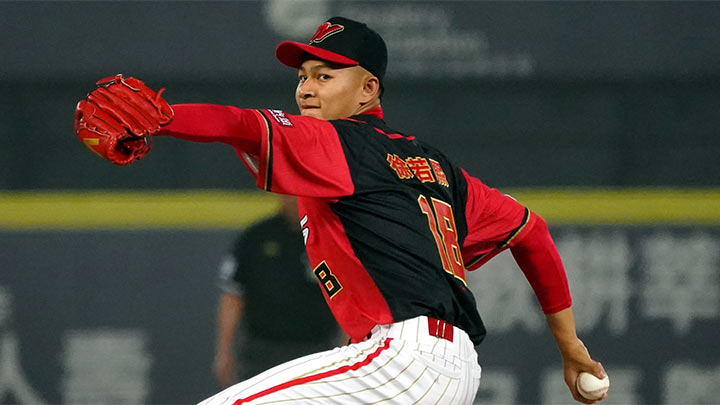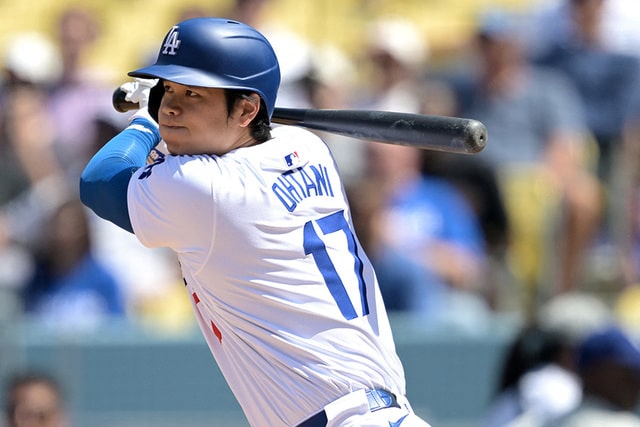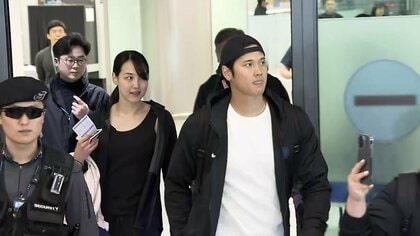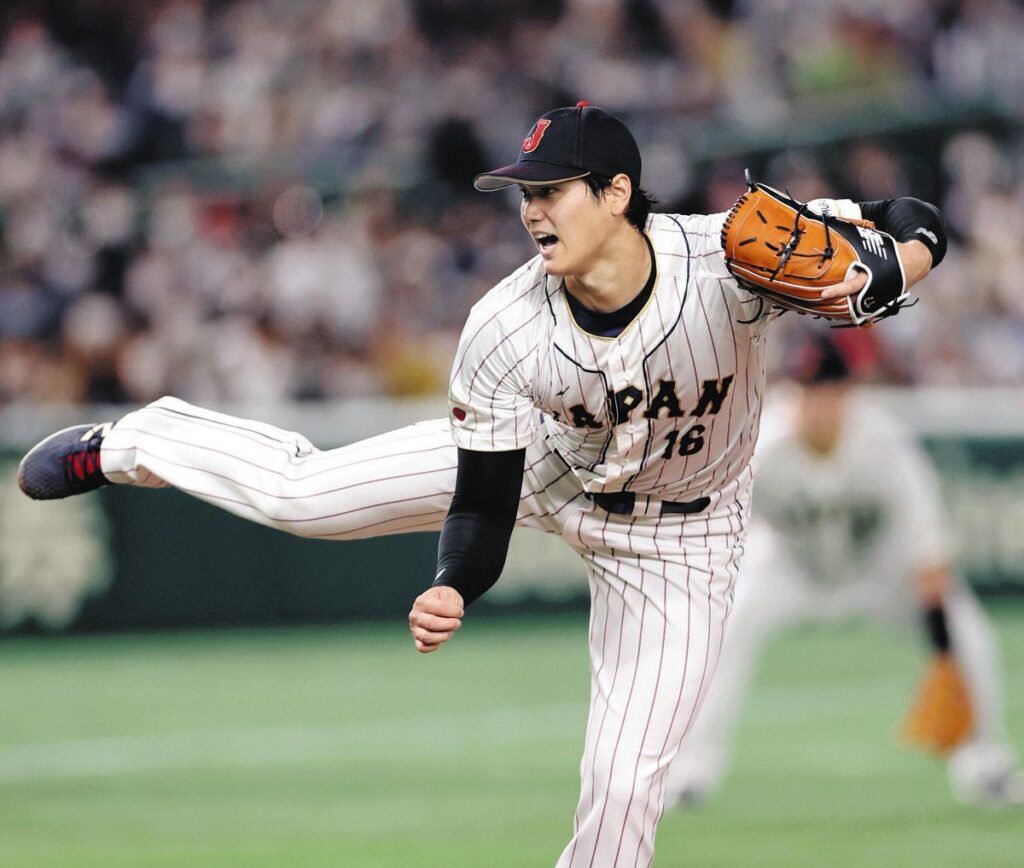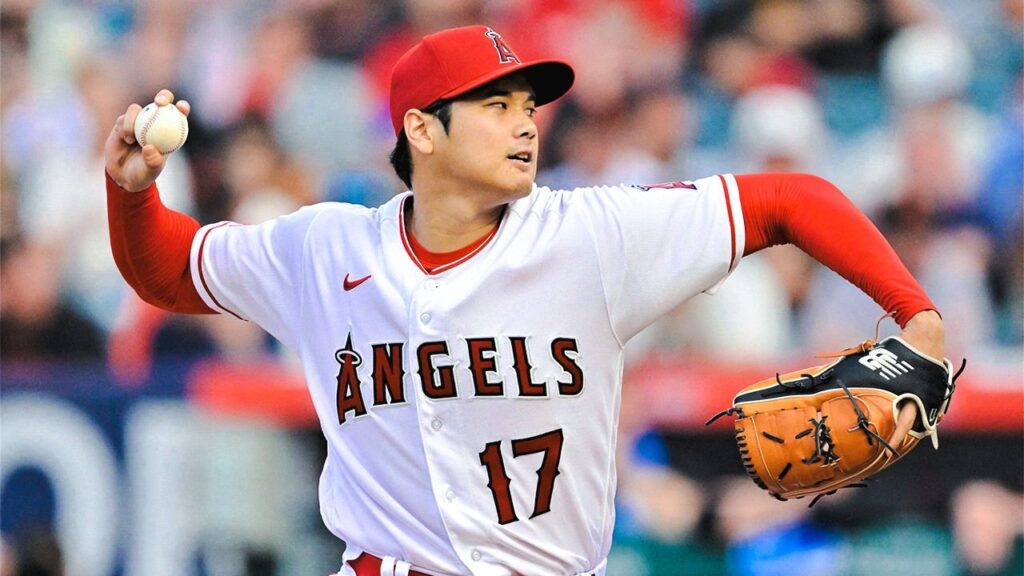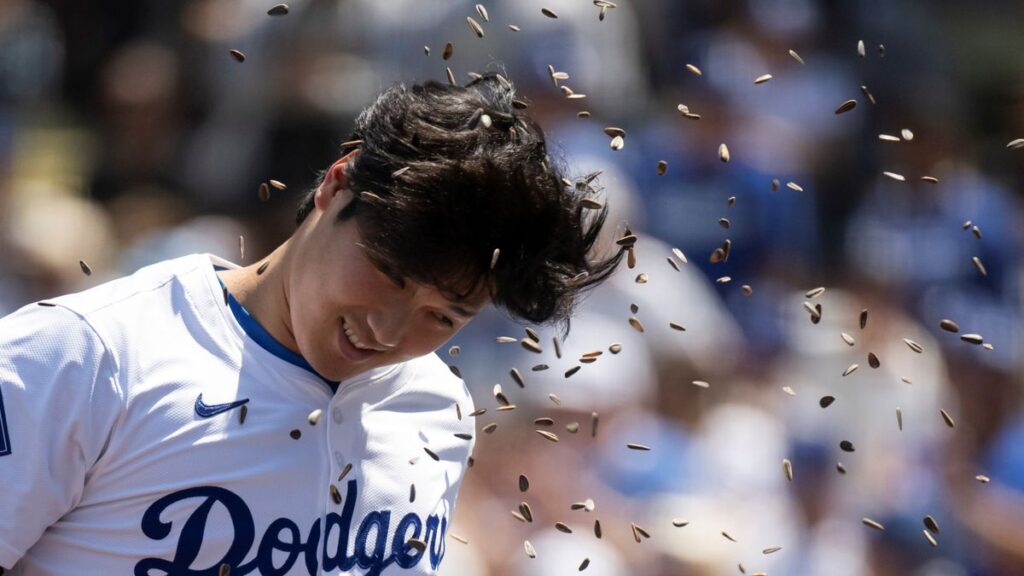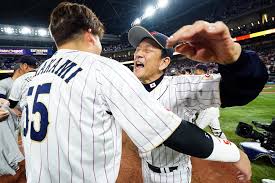
Samurai Japan is the team that represents Japanese baseball and is highly regarded both at home and abroad.
Behind this success is a great deal of influence from talented directors.
The Samurai Japan manager plays a vital role in deciding the team’s tactics, developing the players and bringing out their best performance.
This article focuses on the Samurai Japan manager and provides an in-depth look at his history, role, and future prospects.
Based on the latest information, we will look at the importance of Samurai Japan’s manager from various perspectives, including how to select a manager, the current manager’s strategy, and past success stories.
Let’s start by looking at the history of Samurai Japan and the background to its creation.
目次
What is Samurai Japan?
Samurai Japan is the nickname of Japan’s national baseball team and is made up of top players selected to perform in international competitions.
He is a symbol of Japanese baseball and his name is known around the world.
Here we will explain in detail the history of Samurai Japan, the background to its creation, and its mission and goals.
The history of Samurai Japan and the background to its creation
The history of Samurai Japan dates back to the first World Baseball Classic (WBC) held in 2006.
This is an international tournament in which the world’s strongest baseball nations participate, bringing together top players from Major League Baseball (MLB) and other professional leagues.
The Japanese national team was nicknamed “Samurai Japan” for this WBC and was formed as the first team to aim to be the world’s best.
Shigeo Nagashima was supposed to be the first manager, but he declined due to health reasons and was replaced by Sadaharu Oh.
This team achieved a stunning victory in the first WBC, demonstrating the power of Japanese baseball to the world.
Since then, Samurai Japan has participated in international competitions such as the WBC, Premier 12, and the Olympics, accumulating numerous achievements.
Notably, they also won the second WBC in 2009, achieving consecutive victories.
As a result, Samurai Japan has become a force to be reckoned with not only among Japanese baseball fans, but also among baseball fans around the world.
Samurai Japan’s Mission and Goals
Samurai Japan’s mission is to spread Japanese baseball to the world and prove its prowess.
This doesn’t just mean winning games, but also conveying the appeal, techniques and spirit of Japanese baseball.
As a symbol of Japanese baseball, Samurai Japan aims to inspire and excite fans both at home and abroad through their success on the international stage.
-
Victory in international competitions Samurai Japan’s biggest goal is to win international competitions such as the WBC, the Olympics, and the Premier 12. Winning in these competitions not only shows the power of Japanese baseball to the world, but also has the effect of increasing the popularity of baseball in Japan. Samurai Japan is always competing against the world’s best teams, aiming for the best results.
-
Player Development and Development Samurai Japan is also important for young Japanese players. Being selected for the national team is a great honor for a player and an opportunity to make a leap in their career. Through their experience with Samurai Japan, young players can improve their skills and mental strength. This will raise the overall level of baseball in Japan.
-
Promoting international exchange Samurai Japan also plays an important role in international exchange. Through matches against overseas teams, they are exposed to different cultures and playing styles. This allows the players to gain diverse experiences and contribute to the overall development of Japanese baseball. Furthermore, success in international tournaments will promote sports exchange between Japan and other countries, and deepen international friendships.
-
Samurai Japan has also contributed greatly to the spread and popularity of baseball in Japan. Their success in international tournaments is a great inspiration for children and the younger generation, providing them with an opportunity to start playing baseball. This will increase the number of baseball players in the next generation and deepen the future player pool.
Samurai Japan is highly regarded both at home and abroad as a symbol of Japanese baseball.
To achieve this mission and goals, we constantly strive for the highest level of performance and continue to shine on the world stage.
Samurai Japan will continue to be the pride of Japanese baseball, and will continue to work to inspire and excite fans.

Introduction to the past Samurai Japan managers
Samurai Japan has been led by many outstanding managers throughout its history.
Each manager has led their team with their own unique tactics and leadership, achieving numerous successes.
Here we will take a closer look at the achievements and influence of the first manager, as well as the characteristics and track record of each manager.
The achievements and influence of the first director
- Sadaharu Oh (2006) Sadaharu Oh made his name as the first manager of Samurai Japan. He led the team to an impressive victory in the first World Baseball Classic (WBC) in 2006. Just as he set many records as a player, Sadaharu Oh also achieved great things as a manager.
Mr. Wang’s leadership boosted morale and created a sense of unity among the entire team.
His strict yet warm coaching style gave his players confidence and courage.
In particular, the bold tactics used in the final game resulted in a new chapter in the history of Japanese baseball.
It can be said that Oh’s achievements laid the foundation for Samurai Japan and paved the way for their subsequent success.
Characteristics and track record of each manager
-
Tatsunori Hara (2009) Tatsunori Hara was the manager of Samurai Japan in the second WBC in 2009, leading the team to consecutive victories. Hara’s coaching style was characterized by aggressive tactics and solid defense, bringing out the best in his players. In particular, the fierce battle against South Korea in the finals symbolized the tenacity and unity of Japanese baseball.
-
Koji Yamamoto (2013) Koji Yamamoto was the manager in the 3rd WBC in 2013. His coaching style emphasized communication with the players and fostered a sense of unity in the team. Unfortunately, Samurai Japan lost in the semi-finals, but under Yamamoto’s guidance, young players emerged, bringing bright prospects for the future of Japanese baseball.
-
Hiroki Kokubo (2017) Hiroki Kokubo served as the manager at the 4th WBC in 2017. Kokubo brought his experience and passion as a player, breathing new life into the team. His tactics were based on speed and mobility, and the team advanced to the semi-finals. Under Kokubo’s guidance, many players were able to gain experience on the international stage.
-
Atsunori Inaba (2020, 2021 Olympics) Atsunori Inaba served as the manager of Samurai Japan at the 2020 Premier12 and the 2021 Tokyo Olympics. Inaba led the team with calm judgment and trust in his players, and in particular won the gold medal at the Tokyo Olympics. This achievement was a historic feat for Japanese baseball, and Inaba’s leadership contributed greatly to it.
-
Hideki Kuriyama (2023) Hideki Kuriyama was the manager at the 5th WBC in 2023. Kuriyama’s coaching is characterized by tactics that make full use of data analysis and an approach that emphasizes mental care of the players. Under his guidance, Samurai Japan continues to fight to once again reach the top of the world.
Each of Samurai Japan’s successive managers has utilized their own unique characteristics to lead the team to success.
Their coaching and tactics have built the history and tradition of Samurai Japan and provide many lessons and inspiration for the next generation of managers.
Samurai Japan’s success is due to the hard work and dedication of these managers, and their impact will continue to be felt for years to come.

Current Samurai Japan manager
The current manager of Samurai Japan is Hideki Kuriyama, who leads the team with his outstanding leadership skills and strategic vision.
Here we take a closer look at Manager Kuriyama’s profile and his strategy and vision.
Current Director Profile
Hideki Kuriyama was born in 1957 and is a former professional baseball player.
During his playing career, he played for the Yakult Swallows, primarily as an outfielder.
After retiring from active play, he worked as a baseball commentator and sportscaster before becoming the manager of the Hokkaido Nippon-Ham Fighters.
Kuriyama served as manager of the Nippon Ham Fighters from 2012 to 2021, during which he led the team to victory in the Pacific League and the Japan Series.
Kuriyama is known for his leadership skills, including his strategic thinking and ability to communicate with players.
His calm judgment and flexible tactics have earned him the trust of many players and he serves to boost the morale of the entire team.
Current manager’s strategy and vision
Manager Kuriyama’s strategy and vision are characterised by an innovative approach that is not bound by conventional frameworks.
His coaching style relies on data analysis to help players develop their individual talents to the fullest.
-
Data-driven tactics Manager Kuriyama develops tactics that actively incorporate data analysis. He bases his strategies on detailed data such as the pitcher’s pitch type, the batter’s batting tendencies, and the defensive positioning, and creates optimal plans for each game. This allows him to implement effective tactics that exploit the weaknesses of the opposing team.
-
Diverse use of players Coach Kuriyama employs a diverse method of using players. He does not stick to a specific position, but flexibly changes the positioning according to the characteristics and condition of the players. This makes it easier for players to adapt to their roles, improving the performance of the entire team. He also actively gives playing opportunities to young players, building a team with an eye to the future.
-
Coach Kuriyama also puts a lot of effort into providing mental support to his players. He provides mental care to his players through pre- and post-game meetings and individual interviews, creating an environment in which they can perform at their best. In particular, providing mental support during important games and stressful situations is an important element in increasing team unity.
-
Offensive tactics Manager Kuriyama places great importance on aggressive tactics. He uses risky plays such as aggressive bunts, stealing bases, and run-and-hits to put pressure on the opposing pitcher and defense. This allows him to control the flow of the game and lead to victory.
-
Strategies on the international stage In international tournaments, it is necessary to respond to different playing styles and tactics. Coach Kuriyama has put together a team of players with a lot of international experience, and he creates strategies after analyzing the characteristics of the opposing team. In particular, he is putting a lot of thought into how he uses his pitching staff and how he arranges the batting order, aiming to win on the international stage.
Under the leadership of manager Hideki Kuriyama, Samurai Japan is entering a new era.
His strategy and vision are focused not just on the team’s short-term success but also on long-term development, giving us great hope for the future of baseball in Japan.
Let’s hope that under the guidance of Manager Kuriyama, Samurai Japan will continue to strive for even greater heights.
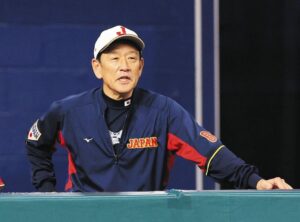
Supervisory Roles and Responsibilities
The Samurai Japan manager has a vital role and responsibility in the team’s success.
A manager must handle a wide range of tasks, including deciding on team composition and tactics, as well as developing and motivating players.
Here we explain in more detail the roles and responsibilities of the Director.
Deciding on team composition and tactics
-
Player selection and team formation One of the most important roles of a manager is to select the right players and form a balanced team. This requires identifying players’ individual abilities, positional suitability, and team strategy. In international tournaments in particular, it is necessary to select players who can adapt to a variety of playing styles and tactics. The manager works with scouts and coaches to create the optimal team based on the latest data and player conditions.
-
Tactical planningThe coach formulates tactics for each game and determines the team’s playing style. This includes strategies for both offense and defense. For example, pitching staff rotations, how relief pitchers are used, batting order, and defensive shifts. Especially in international tournaments, it is important to thoroughly analyze the characteristics and weaknesses of the opposing team and develop tactics based on that.
-
During a match , the manager must make quick and accurate decisions. By assessing the flow of the match and making timely substitutions and changes to tactics, the team can win. It is also important to understand the condition and performance of the players in real time and adjust tactics as necessary. The manager’s decisions can greatly affect the outcome of the match, so he must be able to make calm decisions and respond flexibly.
Player Development and Motivation Management
-
Player Development Coaches are responsible for the long-term development of their players, not just the short-term success of their team. It is important to provide young players with opportunities to gain experience and encourage their development. This includes devising training menus and using them in matches. Managers work with the coaching staff to bring out the strengths of each player and improve the overall level of the team. They also provide not only technical instruction but also mental support, creating an environment in which players can play with confidence.
-
Motivation management : Another important role of the coach is to motivate the players and maintain the morale of the team. This is done in a variety of ways, including pre- and post-match meetings, individual interviews, and words of encouragement. Especially on a big stage like an international tournament, it is necessary to ease the players’ tension and pressure and allow them to play with confidence. The coach will understand the players’ feelings and provide them with the appropriate support to bring out their best performance.
-
Fostering team unity Coaches are required to foster team unity and create an environment where players work together towards a common goal. This is done through team-building activities, setting common goals, and encouraging communication within the team. When players trust each other and work together, the performance of the entire team improves.
-
Demonstrating leadershipThe manager is the one who demonstrates leadership and leads the team. Their actions and words during games, practice, and everyday life have a big impact on the players. The manager’s leadership shows the team’s direction and fosters a positive attitude in the players, even in difficult situations.
The Samurai Japan manager has a wide range of roles and responsibilities, including deciding on team composition and tactics, as well as developing and motivating players.
The manager’s leadership and strategic decisions are extremely important as they directly affect the team’s success.
The role of the manager will continue to be an essential element in the development and success of Samurai Japan.
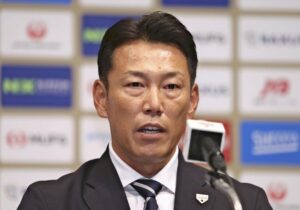
How to choose a Samurai Japan manager
The Samurai Japan manager plays a vital role in determining the fate of the team.
That’s why we have strict processes and criteria for selecting directors.
Here, we will explain in detail how the Samurai Japan manager is chosen, the process and criteria for selecting the manager, as well as the behind-the-scenes stories and episodes from the manager selection process.
Manager selection process and criteria
-
Establishment of a Selection Committee The selection of Samurai Japan’s manager will be made by a specialized selection committee. This committee is made up of experts in the baseball world, including people associated with the Nippon Professional Baseball (NPB), past Samurai Japan managers, and baseball commentators. The selection committee will create a list of candidates and choose the most suitable person from that list.
-
Candidate Evaluation Criteria Candidates for Supervision will be evaluated on the following criteria:
- Coaching experience : Candidates are required to have extensive coaching experience in professional baseball teams and international tournaments.
- Achievements : Players will be evaluated on their track record of leading their team to victory in the past and their success in developing players.
- Leadership : The ability to bring a team together and personal charm are important.
- Strategic : You need to be familiar with data analysis and tactics, and have the ability to develop flexible strategies.
- Communication skills : It is important to be able to communicate well with players and coaching staff.
-
Interviews and Selection The selection committee will meet with the candidates to hear more about their vision, strategy and leadership style. Through the interviews, we will evaluate the candidates’ suitability and contribution to the team and select the most suitable manager.
-
After the selection committee has decided on the manager, the manager will be officially appointed after approval from the Nippon Professional Baseball Organization. The new manager will then be announced at a press conference or other event, and it will be officially announced that he or she will be leading the team.
Behind the scenes and stories of the director selection
-
Anecdotes about the selection of the first managerWhen it came to selecting the first Samurai Japan manager, Shigeo Nagashima was one of the candidates, but he had to decline due to health reasons. Sadaharu Oh was then selected. With his charisma and track record, Oh was able to bring the team together and lead them to a brilliant victory in the first WBC. This selection process is passed down as an episode that symbolizes the difficulty and importance of choosing a manager.
-
Selection of Manager Tatsunori HaraTatsunori Hara was selected as the manager for the 2009 WBC. He was highly regarded for his experience and track record with the Yomiuri Giants, and received strong support from the selection committee. Hara’s aggressive tactics and leadership led the team to consecutive victories, proving the selection to be the right choice.
-
Selection of Manager Koji Yamamoto Koji Yamamoto was selected as the manager for the 2013 WBC. He was selected because of his extensive coaching experience and his personal appeal. Yamamoto built a relationship of trust with the players and succeeded in increasing the sense of unity on the team.
-
Selection of Manager Atsunori InabaAtsunori Inaba has been selected as the manager of Samurai Japan for the 2020 Premier12 and the 2021 Tokyo Olympics. His selection was the result of his calm judgment and leadership based on trust in his players. Inaba proved his leadership ability by winning a gold medal at the Tokyo Olympics.
-
Hideki Kuriyama was selected as manager because of his data-driven tactics and his approach that emphasizes mental care of his players. He is expected to use his successful experience with the Hokkaido Nippon-Ham Fighters to lead Samurai Japan to new heights.
The selection of Samurai Japan managers is based on a rigorous process and criteria, and many of them have interesting stories behind them.
These selection processes are extremely important as they directly impact the success of the team.
The selected managers are leading their teams with their own leadership skills and strategies, and continuing to fight with the pride of Japanese baseball on their shoulders.
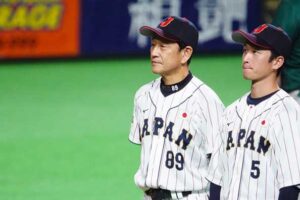
Samurai Japan’s successes and challenges
Although Samurai Japan has achieved many successes throughout its illustrious history, it still faces some challenges today.
Here we will take a closer look at past successes and the factors behind them, as well as the current challenges we face and how we can improve them.
Past success stories and their factors
-
2006 WBC Champions Samurai Japan won the first World Baseball Classic (WBC) held in 2006. The key to this success was the leadership of the first manager, Sadaharu Oh, and the high morale of the entire team. Manager Oh gave the players confidence and created a sense of unity. Furthermore, Ichiro’s presence greatly boosted the team’s morale and demonstrated leadership during the games.
-
2009: Back-to-back WBC victoriesIn the second WBC in 2009, Samurai Japan won back-to-back championships under manager Tatsunori Hara. Manager Hara’s aggressive tactics and the high performance of the players were the reasons for their victory. In particular, in the fierce battle against South Korea in the final, where both teams were closely matched, calm judgment and precise tactics brought victory. This success once again proved the strength of Japanese baseball to the world.
-
2021 Tokyo Olympics Gold Medal At the 2021 Tokyo Olympics, Samurai Japan won the gold medal under the guidance of manager Atsunori Inaba. The key to this success is Manager Inaba’s calm judgment and the strong will of the players. In particular, the team’s unity throughout the tournament and their calm play under pressure stood out. Manager Inaba’s trust in his players and the appropriate way he used them led the team to victory.
Current issues and solutions
-
Development of young players and lack of international experience Samurai Japan faces the challenge of developing young players and lack of international experience. Many of the players have little experience in international competitions, and they may not be able to handle tension or pressure well. The following are some possible solutions to this issue:
- Active use of young players : Actively use young players in domestic leagues and friendly matches to allow them to gain practical experience.
- Conducting overseas tours : Increase the number of international matches and overseas tours to provide young players with plenty of international experience.
-
Samurai Japan needs to increase the depth of their player base . In particular, the lack of depth in their pitching staff is considered a problem. The following measures are effective in addressing this issue.
- Strengthening training and development programs : Introduce specialized training programs with an emphasis on developing young pitchers.
- Strengthening scouting : We will strengthen our scouting activities to identify promising players both domestically and internationally and add them to our team.
-
Diversifying tactics International matches require diversifying tactics to accommodate a variety of playing styles. The following measures are effective in this regard:
- Introduction of data analysis : By making full use of data analysis, we thoroughly analyze the characteristics of the opposing team and develop tactics based on that.
- Adopt flexible tactics : Have players learn a variety of tactics so that they can change tactics flexibly depending on the situation of the game.
-
Strengthening mental support Mental support is important for players to perform at their best under pressure. The following measures can be considered to improve this:
- Introduction of mental training : Assign specialized mental trainers to each team to provide mental support to players.
- Team-building activities : Through team-building activities, players will strengthen their trust and develop a sense of unity.
Although Samurai Japan has had a lot of success, they still face some challenges.
To overcome these challenges, it is necessary to develop young players, deepen the player pool, diversify tactics, and provide more mental support.
By implementing these improvements, it is expected that Samurai Japan will achieve greater success and become more competitive on the international stage.
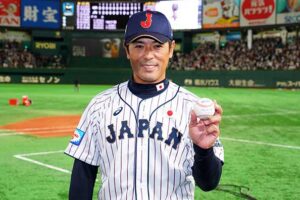
Expectations for the future Samurai Japan manager
Samurai Japan’s success has been built under the guidance of many outstanding managers.
There are high expectations on the future Samurai Japan manager to achieve even greater success.
Here, we will explain in detail what is required of the next generation manager, Samurai Japan’s future prospects, and the role of the manager.
What is expected of the next generation of directors?
-
Innovative tactics and data utilization Next-generation managers are required to be flexible enough to adopt innovative tactics without being bound by traditional tactics. As data analysis technology evolves, it is important to use statistical and performance data to design tactics that maximize the abilities of players. For example, data-based strategies such as effective rotation of pitching staff and optimization of defensive shifts are required.
-
International experience and a global perspective Having experience in international competitions and a global perspective is essential for the next generation of managers. A manager with extensive international experience is needed to deal with different playing styles and tactics. In addition, understanding and incorporating international trends and baseball cultures from other countries is expected to increase Samurai Japan’s competitiveness.
-
Ability to communicate with playersThe ability to communicate with players is an important skill for a manager. Open and honest communication is required to gain the players’ trust and motivate them. In particular, when developing young players, it is important to support them in their development and relieve their pressure.
-
Mental support and leadershipThe next generation of coaches need mental support and strong leadership. It is important to provide mental training and psychological support so that players can perform at their best even in difficult situations. In addition, leadership is necessary to show the team’s direction and bring the players together.
Samurai Japan’s future prospects and the role of the manager
-
Developing young players and discovering future star players Looking to the future of Samurai Japan, developing young players is a top priority. The next generation of coaches will be responsible for providing young players with plenty of practical experience and supporting their development. By discovering future star players and giving them experience in international competitions, it is expected that the team will maintain its competitiveness.
-
Strategies to win in international competitions The future Samurai Japan will aim to win international competitions such as the World Baseball Classic (WBC), the Olympics, and the Premier 12. The next generation of managers will need the ability to create and execute strategies to win these competitions. It is especially important to prepare for matches against different playing styles and strong countries.
-
Popularizing baseball and expanding the fan base Samurai Japan’s future vision also includes popularizing baseball and expanding the fan base. The next generation of managers will be expected to continue to provide attractive plays and strategies to increase the popularity of baseball both at home and abroad. This will hopefully attract new fans and spread the appeal of baseball.
-
Fostering team unity and culture The future Samurai Japan manager will be responsible for increasing team unity and cultivating the unique culture of Samurai Japan. It is important to create an environment where players trust each other and work together to achieve the same goal. This will improve the performance of the entire team and ensure sustained success.
The next generation of Samurai Japan managers will be required to have innovative tactics and data utilization, international experience and a global perspective, the ability to communicate with players, as well as mental support and leadership.
In Samurai Japan’s future outlook, developing young players, winning international tournaments, promoting baseball and expanding the fan base, and fostering team unity and culture will play an important role.
Let’s hope that under the guidance of their future manager, Samurai Japan will continue to strive for even greater heights.
